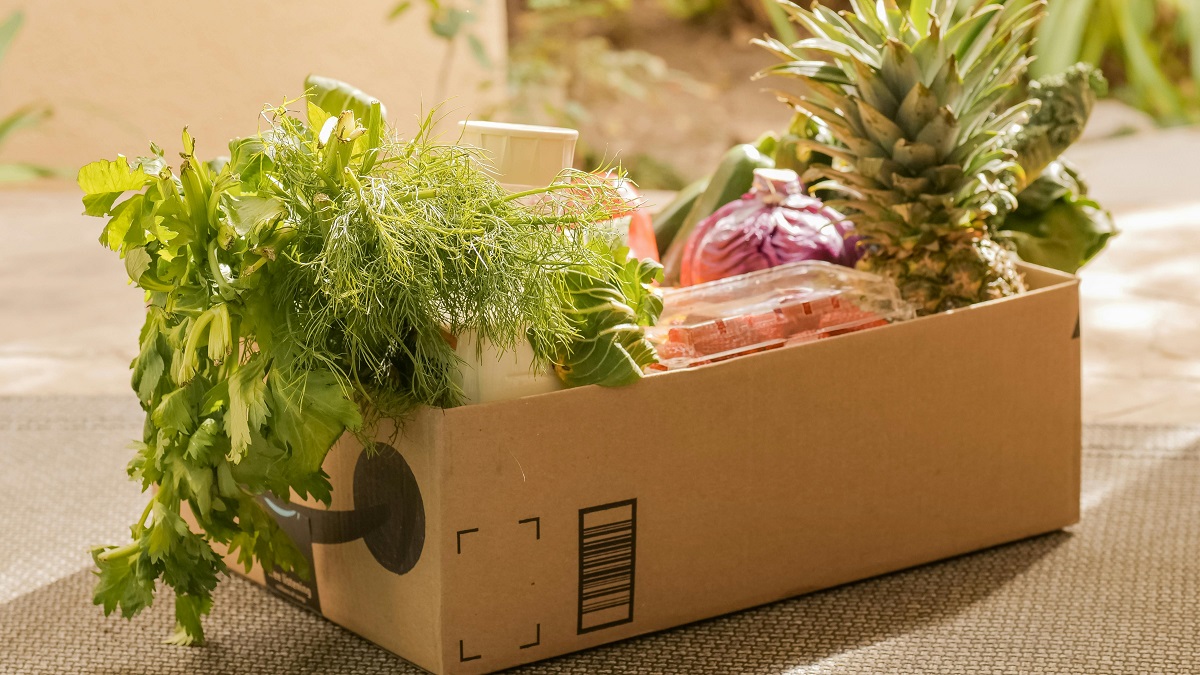
RFID in the food industry is gaining more and more recognition. This is due to the fact that this technology provides automation of the company’s asset records and speeds up and streamlines delivery and order management processes. RFID in the food industry is gaining more and more recognition, allowing products to be tracked at every stage of the supply chain, which increases efficiency and safety. How to use smart tags in the food industry?
RFID stands for Radio Frequency Identification and refers to technology that uses radio waves to transmit information about product records. Using remote readers, employees in your warehouse or store can scan large quantities of goods in a short time, because each item is marked with a chip (also known as an RFID tag or marker), in whose memory the necessary information is stored.
There does not have to be free space between the reader and the tag. Hence, scanning is fast and can be done even from a distance of several, several dozen or even several hundred meters, depending on the type of tag and reader used.
Radio technology is so universal that it can be used in various types of transport – road freight forwarding, sea transport, rail and air transport.

Fot. usertrmk z Freepik
RFID technology provides much greater certainty of reading data than traditional barcodes. The tags are weatherproof, so they are suitable for use in cold stores or rooms with high temperatures. You can place them on almost any item, and the tag’s capacity is greater than in the case of regular barcodes.
Unlike barcodes, RFID technology is faster, simpler, and you can use the tags multiple times. Simply erase the information once and re-code the tag.
All data is protected against unauthorized access. There is no risk of an unauthorized person modifying or deleting tag records.
Thanks to RFID, you can easily ensure the smooth running of your logistics processes.
People responsible for organizing transport will easily locate a specific product or an entire pallet. This will allow you to constantly check the stock levels on shelves and stock reserves and replenish orders when needed.
Smart food packaging equipped (ang. smart packaging) with tags monitors expiration dates, so the risk of the product expiring and having to be thrown away is reduced. Better management means less loss and more profit from the business.
RFID also means more efficient order handling. A lower percentage of errors means that goods are completed faster and fewer complaints are filed with the company.
Remember that RFID is not only manual readers used during order picking or inventory. It is also gates. The task of such devices is to track every product that leaves the warehouse and automatically modify digital records to the extent necessary. Thanks to such assistance, employees do not have to monitor every shift manually.

Fot. z Pexels.com
Managing food quality using smart technology has many benefits for your business:
Thanks to RFID technology, employees work more efficiently because they are less burdened. In practice, this also means greater safety and a lower risk of accidents at work.
Radio technology also means greater safety for consumers. You can easily identify and withdraw a defective batch of goods from circulation before it reaches the recipients.
Currently, RFID is increasingly replacing barcodes. Although its implementation is more expensive, in practice it offers much greater possibilities, flexibility and scalability. So you can use it both when you have a smaller company and when you run a business on a larger scale, and in a short time you can adjust to the volume of orders.
The implementation of RFID itself requires a thorough analysis of the company’s needs. Before installing the tags, you need to precisely determine the technical parameters, i.e. establish:
The selection of markers with respect to their resistance to environmental conditions depends on this last criterion.
In the logistics industry, the combination of the RFID system with other software used for business management, e.g. ERP ( ang. Enterprise Resource Planning) czy WMS (ang. Warehouse Management System). Stworzenie sprawnie działającego ekosystemu jest jednak ważne, aby móc czerpać z odczytów radiowych maksimum korzyści.
Modern RFID solutions in the food industry can be implemented at every stage of logistics operations. From the moment the goods are placed on the production line, through packaging, transport, storage, to the management of goods on store shelves, each process becomes less time-consuming, simpler and is carried out with greater accuracy.